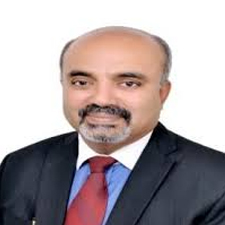
Time : 11:00 AM to 12:00PM
Palliative care is an approach that improves the quality of life of patients (adults and children) and their families who are facing problems associated with life-threatening illness.
Understanding Your Diagnosis:
This involves comprehending the type and stage of cancer, prognosis, and treatment options available. It's essential to ask questions and seek second opinions if needed to fully grasp your situation.
Finding and Paying for Treatment:
Finding appropriate treatment often involves consultations with oncologists and specialists. Financial aspects can be challenging, so exploring insurance coverage, financial assistance programs, and discussing costs upfront with healthcare providers can help manage expenses.
Side Effects:
Cancer treatments like chemotherapy, radiation, and surgery can cause various side effects. Managing these effectively involves communication with your medical team, using medications or therapies to alleviate symptoms, and making lifestyle adjustments as needed.
Survivorship During and After Treatment:
Survivorship focuses on the physical, emotional, and social challenges faced during and after cancer treatment. This period includes monitoring for recurrence, managing long-term side effects, and adjusting to life after treatment ends.
Caregiver and Family Support:
Caregivers play a crucial role in providing physical, emotional, and practical support to cancer patients. It's essential for caregivers to take care of themselves and seek support through counseling, support groups, or respite care when needed.
Child and Cancer:
Childhood cancer presents unique challenges due to developmental stages and treatment implications. Supportive care tailored to the child's needs, including education and emotional support, is crucial for both the child and their family.
End-of-Life Care:
Palliative care focuses on improving the quality of life for patients facing serious illnesses, including cancer. It addresses pain management, symptom control, and emotional support for patients and their families.
Each of these areas involves complex considerations and emotional challenges. Open communication with healthcare providers, seeking support from support groups or counselors, and educating oneself about available resources can significantly help navigate these aspects of cancer care.

Dr. K.B. Linge Gowda. MBBS, MD, FIPM
Program Director
Biography
Dr. K.B. Linge Gowda is Professor & Head. Dept. of Palliative Medicine at Kidwai Memorial Institute of Oncology, Bangalore. For nearly 40 years, the KMIO has grown from a private humanitarian venture in the early 1950&60`s`s to a Regional Cancer Centre in 1980`s, delivering Tertiary Medical Care to thousands of Cancer patients from our State and different parts of our Country and abroad. KMIO has strived hard to help thousands of people along the way who are grappling with the ill effects of cancer. KMIO has been able to provide vital and compassionate support for poor cancer patients, their loved ones. The medical professionals who care for them at KMIO are committed and dedicated to excellence in patient care, teaching and research. KMIO`s commitment to cancer care, research, education and awareness has a long been acclaimed and KMIO`s unique tradition of providing exceptional patient care, medical education, and research opportunities to benefit both the community at large and physicians in training is also acknowledged by many.